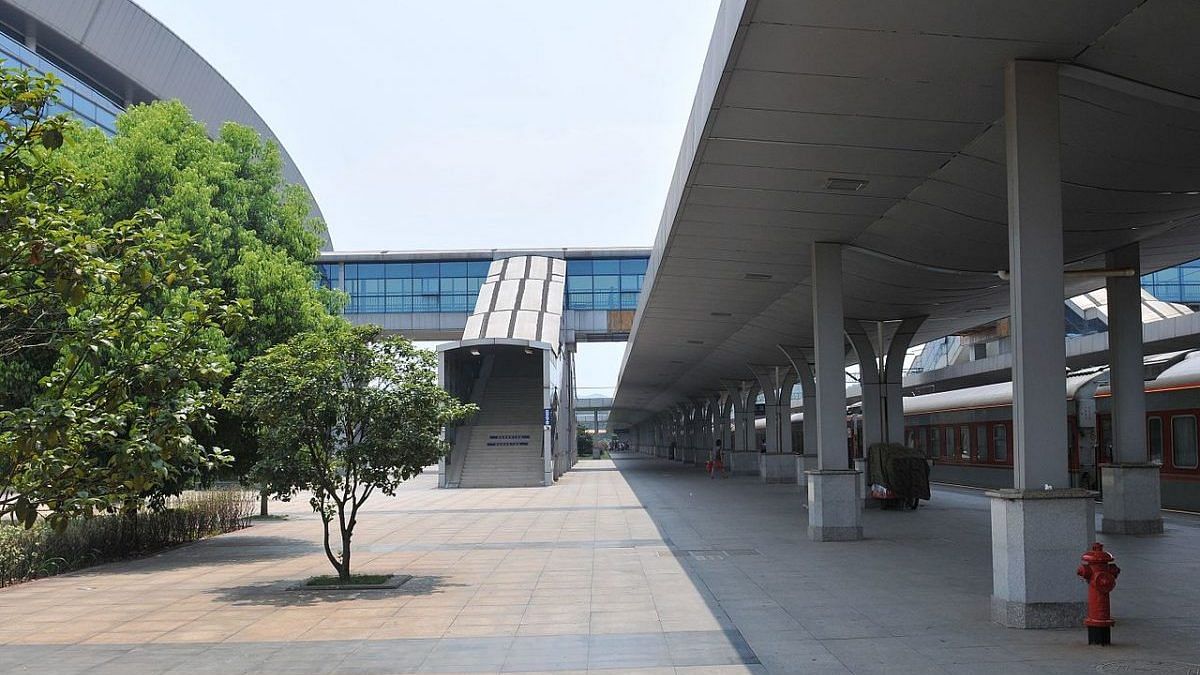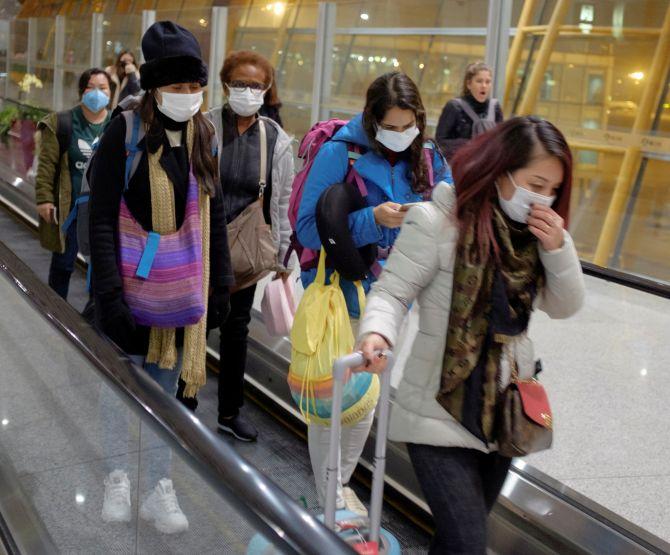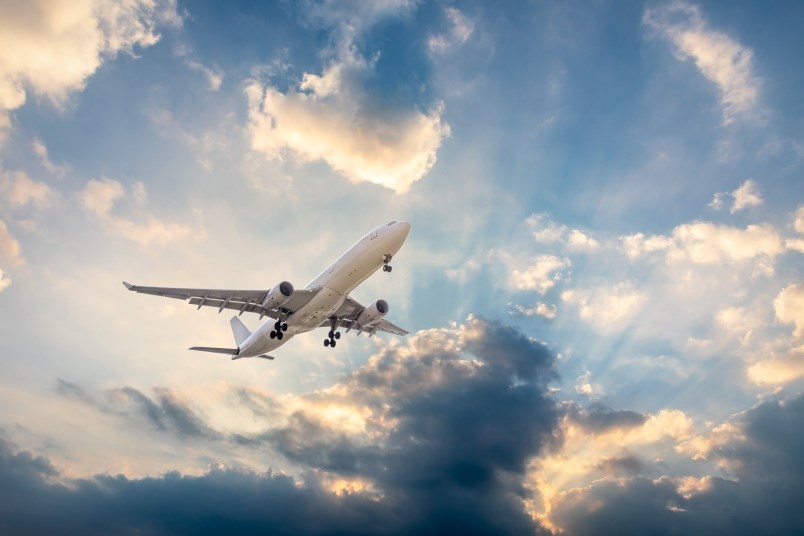Indians are jumping through loops to get into China Duty aeroplanes amid sky-high prices

Indians scramble to enter China; they rent aeroplanes at soaring prices. A white paper on the “Taiwan question” was released by Beijing. The foreign minister of Bangladesh has issued caution over Chinese backing for the Belt and Road Initiative.
A commercial delegation from India visited Zhejiang. The fighting in Galway will soon be the subject of a fresh report. China Scope may provide you with information on news from and about China that you might have missed this week.
The Taiwan Question and China’s Reunification in the New Era is the title of a brand-new white paper published on Wednesday by Beijing’s Taiwan Affairs Office of the State Council. What is so special about publishing a white paper, also? In the most recent one, Reuters noticed an interesting absence.
The Taiwan White Papers from 1993 and 2000 featured the complaint that Beijing “would not kill dogs or executive personnel to be grounded in Taiwan,” but it appears to have been deleted from the most recent white document published before this week. Even though the rejection is noteworthy, it doesn’t necessarily mean Beijing will soon make a significant excursion into Taiwan.
Indeed, in the most recent white paper, using the military option is still a “last resort.” In the most recent white paper stressing peaceful measures of reunification with Taiwan, it’s stated that “non-peaceful tactics will be espoused as the last option, the final volition.” In Beijing’s computations, Taiwan’s trouble announcing independence, which has been its long-standing practice, will be the casus belli for military war.
Although Beijing’s language in Taiwan is substantial, recent joint military exercises have cast doubt on Shanghai’s pledge to refrain from military action. Last week, the Center for Strategic and International Studies (CSIS) wargamed possible Taiwan irruption scenarios; the most important thing to remember is that, in the most extreme cases, Taiwan and the United States can successfully defend the islet. That differs from the understanding of numerous individuals, according to Mark Cancian, an elderly adviser at CSIS.
The US interposed in the war game to cover Taiwan, which led to Taipei successfully repelling an eruption. The results of the war gaming exercise at CSIS show that Beijing was only suitable to conquer one-third of Taiwan despite employing all of its utmost slice-edge service capabilities.
The conclusion of collaborative military operations in the Taiwan region was declared on Wednesday by Colonel Shi Yi, spokesperson for the People’s Liberation Army’s Eastern Theatre Command. Still, continuous military training will presumably continue.
Shi stated that the theatre colors “will keep a close eye on changes in the situation in the Taiwan Strait, continue to conduct military training and medicine, regularly organize combat readiness details in the Taiwan Strait, and intensively defend public sovereignty and territorial integrity.”
Despite Eastern Theatre Command declaring the end of the military drills, Taiwan’s defense ministry reported seeing 13 People’s Liberation Army nonmilitary vessels and 39 PLA aircraft circling Taiwan on Thursday. China’s new military capabilities, according to Oriana Skylar Mastro, a Center Fellow at the Freeman Spogli Institute for International Studies, are superior to those of the US in several felicitations. The quality and size of China’s fortified forces are now on par with those of the United States.
It has the largest line in the world, and the maturity of its platforms is contemporary (using the most recent technology for the applicable sphere). According to Mastro in The Economist, Chinese military capabilities formerly outpaced those of the United States in several disciplines.
These disciplines include shipbuilding, land-based conventional ballistic and voyage dumdums, and integrated air defense systems. In the meantime, despite the trouble posed by China, life in Taiwan appears to be impeccably innocent. Diplomats from Taiwan are making an effort to present their perspectives. “Well, you know, China has been trouble for us for a long time.”
And we must not let their patients’ pitfalls limit our ambition to create global coziness. You do not claim to not attend an academy if your child is being worn out at an academy. Bi-Khim Hsiao, Taiwan’s minister to the US, advised trying to find a strategy to deal with the bully. For the first time since the COVID-19 outbreak began, China has permitted certain foreign citizens with domestic links to the Chinese landmass to depart the nation.
Still, a group of business people from India had jumped through all the loops to visit China. To get around the problem of having too many precious flying days, the group chartered China Southern Airlines flight CZ5256 from Delhi to Hangzhou, according to China Daily. Trippers to China have encountered challenges as a result of extravagant airfare costs, flight dormancy, and cancellations that can linger for weeks. The city of Yiwu in Zhejiang fiefdom dubbed the “small goods capital of the world,” will host the arrival of 107 Indian businesspeople.
The news did indeed trend on the Chinese social networking site Weibo. Weibo druggies were following the trending content. “The nation’s first business duty spurt from India to China takes flight.” The Ministry of Foreign Affairs, the Civil Aviation Administration, the Zhejiang Provincial Department of Commerce, and the Yiwu Municipal Bureau of Commerce all supported the business people’s trip plans. The tale demonstrates the close connections that exist between the commercial communities of China and India at the sub-national level.
For 2021–2022, the trade imbalance between China and India increased from$ 44 billion to$74 billion. In the meantime, trip restrictions have prevented over 4,000 Indian scholars enrolled in medical programs in China from returning. The number of COVID-19 cases has increased in the capital city, Lhasa, and the alternate-largest megacity, Shigatse, as tourism in Tibet has recovered. After 18 positive cases were linked, Lhasa city began a megacity-wide testing program.
COVID-19 has forced the closure of several entertainment venues, institutions of worship, and tourist destinations, including the Potala Palace. However, it seems as though the trips to and from Shigatse and Lhasa are proceeding regularly. Due to Sri Lanka’s catastrophic financial collapse, all eyes have been on neighbouring South Asian nations, particularly Bangladesh.
On Monday, Bangladesh Prime Minister Sheikh Hasina and Chinese State Councilor and Foreign Minister Wang Yi met in Dhaka. Wang Yi stated during his visit that China is willing to ameliorate the alignment of the Belt and Road Initiative with Bangladesh’s Vision 2041, share development strategies and cutting-edge technologies, and consolidate cooperation in structure, digital frugality, green development, and clean energy.
Still, not all aspects of China-Bangladesh ties are excellent. China is being criticized by everyone. China won’t expostulate. According to Bangladesh’s finance minister, Mustafa Kamal, “Everyone would be allowed to subscribe to this design anyhow of the script that is going on abroad.” Meanwhile, The Guardian reported on Thursday without citing any sources about rumors of Xi Jinping’s likely trip to Saudi Arabia.
Still, in response to the story about Xi’s trip to Saudi Arabia, the Chinese foreign ministry told Reuters they had “no information to give at the moment.” The Chinese foreign ministry did not deny that a visit was being contemplated, so one may be in the works. However, it’ll be his first overseas excursion since 2020 if Xi travels to Saudi Arabia. Xi last travelled outside of China in January 2020, when he paid a state visit to Myanmar.
Edited by Prakriti Arora




